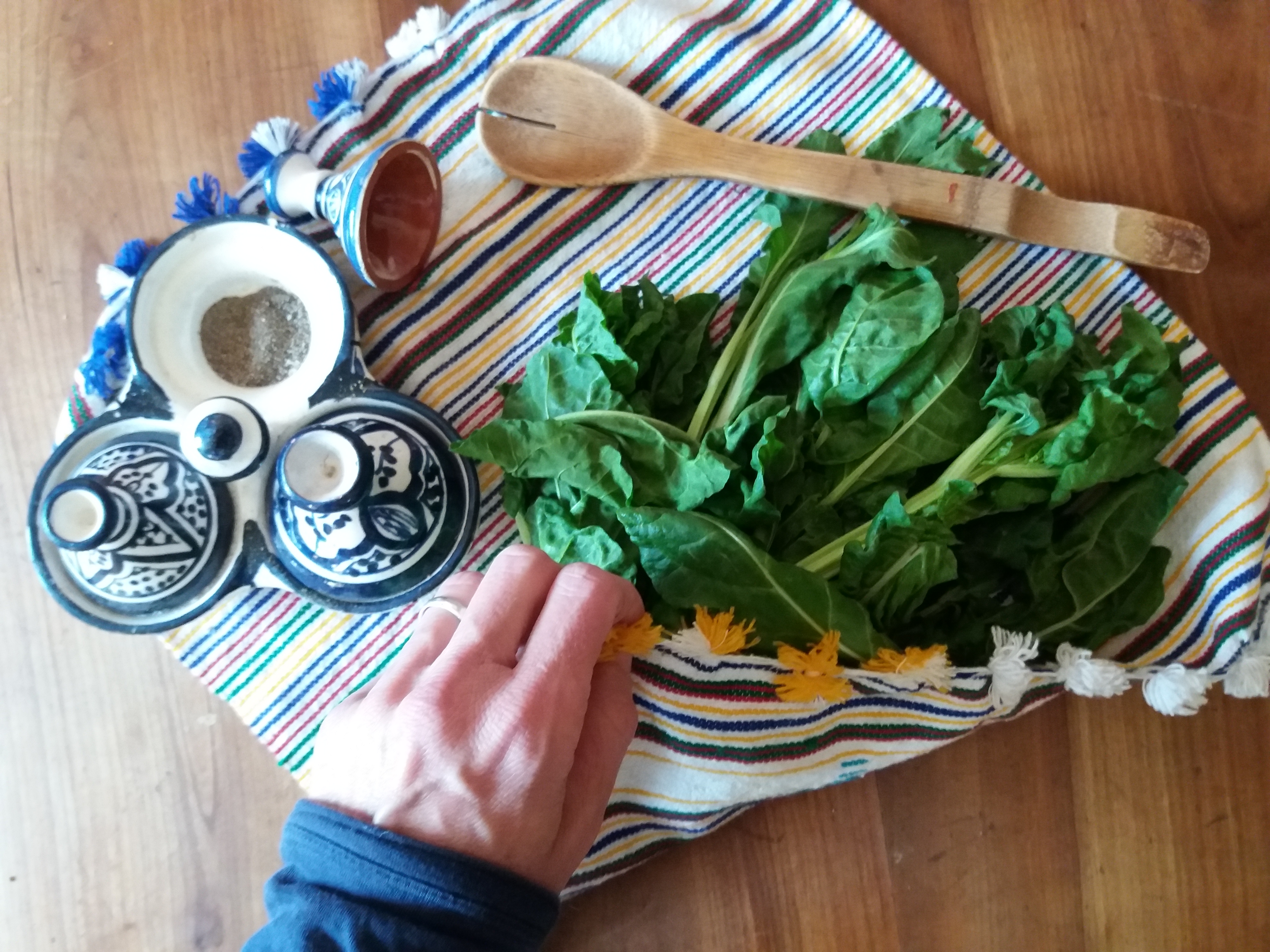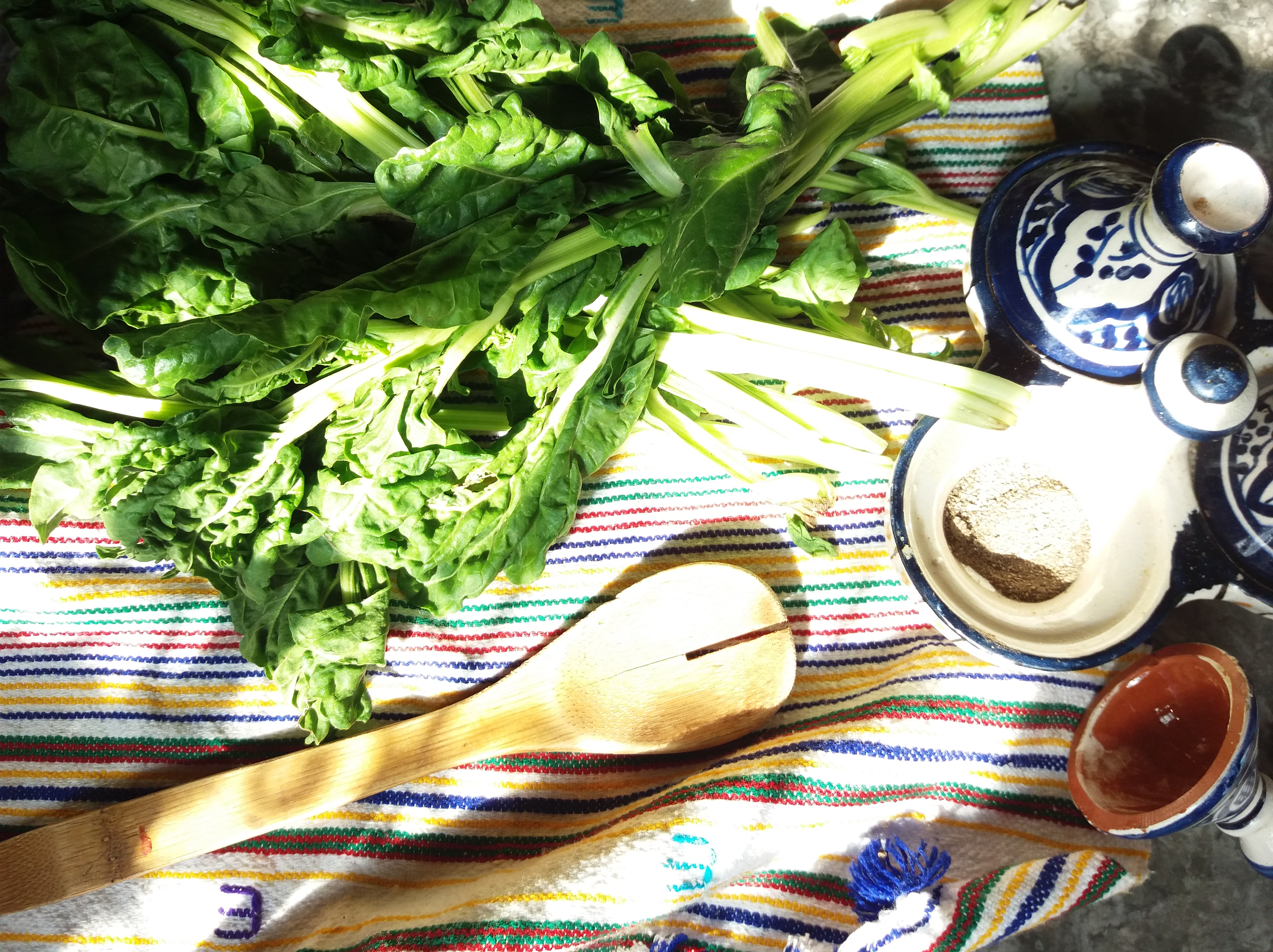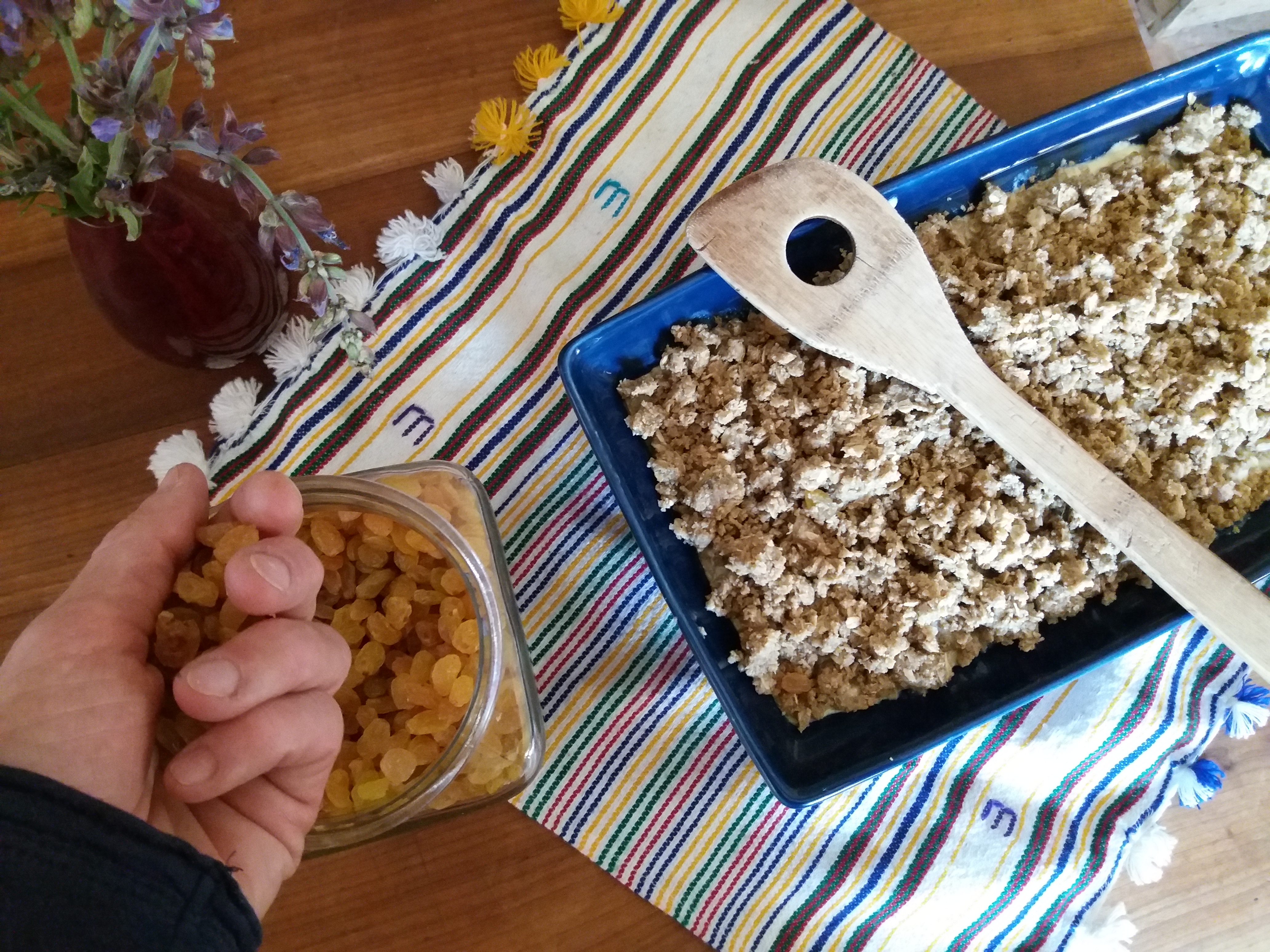
In times like these, with a so-called “world-pandemic” going on, when nothing is sure and everything’s just so new and unpredictable, and in situations like the actual, when we cannot count on previous experience, it is very important to find some secure retreat, some occupation that provides stability or some moment of familiarity.
I think, a life close to nature can offer such sense of security and there is maybe nothing more grounding and soothing than being connected to nature and feeling at least a bit able and in control of a small part of our life (for example concerning the fulfillment of one of our basic needs which is food).
So, I am convinced that everybody would much benefit from learning the basics of horticulture, on how to survive independently and on how to nourish ourselves with the most basic things at hand – just in case we would once really have to… mashaallah.
The question here is not “how to become totally self-sufficient” (which might be nearly impossible and even too extreme and hostile towards society), but “how to live a healthy and natural life that allows us to feel good and in control”.

So today, I really want to encourage you, with my own humble story, to put your hands on some growing and garden work, even if it is just in a few pots on your balcony or window seat.
Come on with me, back to our roots!
My own story as an organic-gardener began already back in Germany: I grew up mostly with biodynamic food in an eco-conscious household, alhamdulillah. But I’ve never really learned how to garden or how to grow food myself. I had no idea about how much energy, time and space, yes, even how much thought and love has to be put into a small kernel until we have our daily bread on our table.
Now, living in the middle of an Amazigh-tribe, amongst Berbers who still entertain their own small farms and basic agriculture, often done by hand, mule-plough and the simplest equipment, I got to learn a lot about the hard work and difficult-labor-reality of the production of what we eat.
Self-sufficiency has always sparked my interest and since more than ten years now, I deliberately learn and grow more and more in these fields and I guess, as a family, we already live a very green and eco-conscious life.

Four years ago, we luckily met a young Swiss permaculture-student and together with him and his wife we transformed the whole land around our house and school into a permaculture model-farm and research-site. So, the campus vivant’e grew into a 2 hectare agricultural farm with different cultivated and wild zones, a forest, several terraces of vegetables patches, an orchard, chicken- and green-house, compost-toilets, greywater-use- and rain-water-collecting-systems, swales and much more. During school-days, it’s the pupils and teachers who learn outside and do much of the work on the campus. Every student here learns about permaculture principles and eco-gardening, along with the content of the national curriculum.

Now that the schools are on shut down since March, I was kind of propelled into a new role: instead of being the head of the school, an arts teacher and the leader of an 20-person-adult-team, I now look after 20 chicken, I water the potato-fields, grow salad and find my way, little by little, into a whole new world, mashaallah – it’s my family and I who now entertain and work the whole ground.
My everyday-work-outfit changed into much more practical (yes, I love wearing the rainboots now all day!) and my hands have gone dry from working with the soil.
I’ve got to find a new rhythm and every day I learn so many new things, along with my children who participate in it all, subhanallah.

I am not a professional at all, I still think my thumbs are not very green, and sometimes I still feel a certain restraint in digging with my hands in the earth. Also, I follow more a kind of “laissez-faire”-gardening-style and prefer to interfere in nature’s natural way as less as possible (much like Fukuoka did). My orchard looks quite wild, our harvest is still small, we are far away from being really self-reliant and we buy much of our food from the local farmer market and some even in the supermarket at the cities.
This was not a conscious choice and until recently, I have always seen myself more like a weekend-gardener or a hobby/amateur-farmer, mostly concentrating on the cultivation of some medical herbs, healing plants and beautiful flowers.
But when I look at the reality of things, at my actual level of satisfaction and the pictures on my old vision boards, I see the positive fulfillment of my long-time wishes and aspirations and so much blessing in it all, alhamdulillah! I learn to trust more and more in my own ability, I re-connect with and loose fear of the soil.

This capability itself already provides a certain level of inner peace and security.
But the most important aspect is the inner balance and shift of focus we can gain by re-connecting with nature and the earth.
Back to the basics, back to soil, touching the ground, understanding where it all comes from and how it grows, are all things that feed our soul on very deep levels and can help to heal us by a change from the often stressful, high-speed, abstract, virtual realities into a much more tangible world: work by hands, learning to be patient and trust the process.
Plus, being in communication with plants, animals and other humans, finding a healthy equilibrium of sharing, trading and connecting with others, concentrating mostly on the closer environment and community, could offer solutions for a better tomorrow of the total.
I might not want to do farm work as a fulltime-job nor do I opt to totally rely on our own harvest, but spending some considerable time in nature and growing at least a bit of what we eat, is really a priceless gift.
Anyway, I think society would do good in re-thinking the image of the peasant, valorizing his work and recognizing his very importance for the survival of the human species – and why not becoming kind of a “philosopher farmer” – part-time in the garden, part-time writing…

little pause with a very inspiring book, some coffee and out of my most beloved shoes these days (Crocs ankle-high rainboots)

Nicole Faires “The ultimate guide to Homesteading” : … “it’s about living as well as you can in less than wonderful circumstances.”
I would be more than happy, if my story encourages you to try it yourself, to take some responsibility, to show interest for your body and how you feed it, to cultivate some respect for nature, to develop a caring attitude for its needs, to gain some understanding of life’s cycles and try to feel the energy of the elements and the seasons.
So, roll up your sleeves and hit the ground / the pots! – I promise, you will feel much more grounded and at peace, even whilst living in a big city during a pandemic.
Would you like to share your gardening experiences with us?
Wishing you blessings inside and out, and much connectedness!
Xxx
Here’s again my (incomplete) list of possibilities to approach a greener way of living in the everyday:
- eating local seasonal organic foods
- minimizing water usage (short showers)
- composting toilet instead of water closet
- home growing and gardening without pesticides
- Composting and waste separation /recycling
- using natural medicine and remedies
- Line-drying the laundry
- Eating as much home-made and made from scratch as possible
- mending and repurposing
- walking, riding (bicycle or mule) or using public transport instead of using the car
- using natural cleaning products (baking soda, vinegar, lemon)
- cloth menstrual pads for woman
- cloth diapers for babies
- cloth wipes for household-cleaning
- cloth wipes instead of toilet paper see here
- using organic or self-made washing detergents (ivy, etc)
- wash and reusing alum foil and plastic bags for packaging
- reusing old paper for papmaché, for fire or for making new paper
- turning off lights
- washing laundry on lower temperature and shorter programs
- using outdoors/indoor clothes; wear clothes until dirty
- meal planning (to create less leftover to waste)
- using solar-/wind-power and other natural energy sources
- shopping with reusable fabric bags
- grey-water-use and rainwater-systems
- buying locally
- using less plastic and more natural materials
- buying or exchange used or second hand things
- opting for high quality stuff (might be more expensive but lasts much longer)
- taking care about our own soul ,nourish our intuition and our connectedness with nature.
To be continued…
And a list of other great books on self-sufficiency, permaculture, gardening and homesteading:
- John Seymour: “The new complete book of self-sufficiency” / “Das Grosse Buch vom Leben auf dem Land”
- John Seymour: “the fat of the land”
- Bill Mollison: “Permaculture – a designer’s manual”
- Perinne et Charles Hervé-Gruyer: “Permaculture”
- Sepp Holzer: “Permaculture” / „Wo ein Wille, da ein Weg“
- Masanobu Fukuoka: „The one straw revolution“/ “ Der große Weg hat kein Tor”
- Abigail R.Gehring: “the back to basics handbook”
- Pierre Rabhi: “The power of restraint” or with Olivier le niare “Semeur d’espoirs”
- Alys Fowler “Abundance” /”Erntezeit”
- Grüner Zweig 66: “Handbuch für Selbstversorger” und “Haltbarmach-Almanach”
- Wolf-Dieter Storl: “Ich bin ein Teil des Waldes” und „Mit Pflanzen verbunden“
- Wolf Dieter-Storl: “Der Selbstversorger”
- Susanne Fischer-Rizzi: “Mit der Wildnis verbunden”
- Joseph Jenkins: „The humanure handbook“
- Marie-Luise Kreuter: “Der Biogarten”
- Maria Thun: “Gärtnern mit dem Mond”
- Carolyn Nutall/Janet Millington “Outdoor classrooms”
- Michael Perry: “Coop”
- Stiftung Silviva “Draussen unterrichten” /”L’école à ciel ouvert”










 Looking back to a wonderful summer, alhamdulillah, enjoying the cooler early autumn air
Looking back to a wonderful summer, alhamdulillah, enjoying the cooler early autumn air



















































